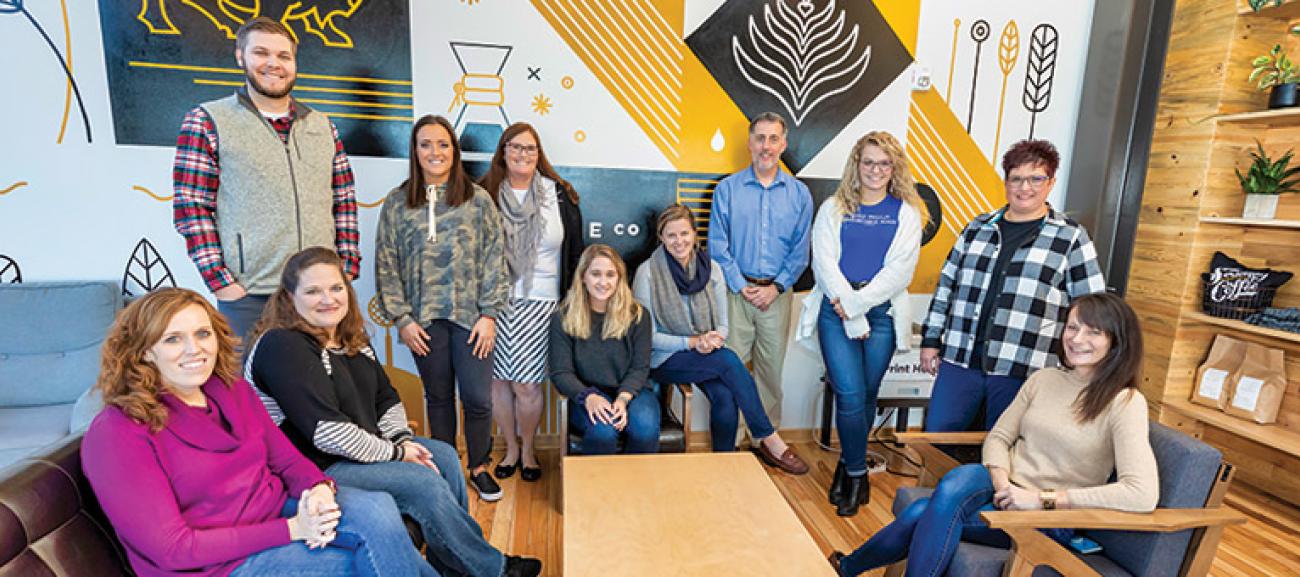
Creighton Team Investigates COVID’s Effect on Families with Diabetic Children

During the COVID-19 pandemic, many people with diabetes have faced difficulties. They are more likely to have serious complications, according to the American Diabetes Association, and more likely to have more severe symptoms.
For children with diabetes — and their caregivers — life during the pandemic has been even more complicated. Families with diabetic children worried about their children getting sick with COVID-19, and about increased rates of diabetic ketoacidosis, and became less likely to take their child in for health care appointments.
“They’re protective over their kids because they just don’t know. There’s much more fear,” says Vanessa Jewell, PhD, OTR/L, vice chair of the Occupational Therapy Department in the School of Pharmacy and Health Professions. “Especially in a rural community, there’s a lot of social isolation. They probably don’t know other families with children who have diabetes. They’re in a bubble.”
Jewell and a team of Creighton researchers are studying the impact of COVID-19 on family quality of life and health care access for families with a child with diabetes. The principal investigator is Marion Russell, OTD’18, MOTR/L, SCFES, director of the Post-Professional Occupational Doctoral Program. Their research is funded by a $50,000 Intervention Research Grant from the American Occupational Therapy Foundation.
The research team includes Creighton faculty members Emily Knezevich, PharmD, BCPS, CDE; and Amy Abbott, PhD, RN, BSN’92, MS’98; along with a young adult living in rural Nebraska who has been diagnosed with diabetes and volunteers with the JDRF (Juvenile Diabetes Research Foundation), Kameran Ulferts.
Stakeholders like Ulferts help facilitate interviews and help the researchers focus the study.
“If you’re not researching solutions to problems people actually care about, there’s no real point in researching it,” Jewell says. “It’s not me the researcher saying, ‘I want to study this because I think it’s important.’”
The research team recently completed a clinical trial on telehealth with rural families, examining child health outcomes, family quality of life and parental health management competence and confidence. For this trial, they’ll reach out to families of children with diabetes with new survey questions.
“Then we’ll do interviews,” Jewell says. “Numbers don’t capture the feelings as well.”
At the end, they’ll be able to compare the new study data with recent data from two studies on caregiver distress and access to care to see differences from before and during the pandemic.
One particular focus will be health care access and navigating the health care system in rural communities. Especially during the COVID-19 pandemic, safety guidelines often meant only one parent and the patient could attend appointments, which could make it difficult for single parents, parents of multiple children and rural families who have to travel to access health care.
Part of the study will involve developing a diabetes health management assessment, focusing on caregivers of young children. Nothing like that currently exists, Jewell says, and it’s an important area of focus since, in the case of young children, the caregiver is responsible for all of the child’s diabetes management.
The researchers will take an occupational therapy- focused view of what happens when children are diagnosed with diabetes. Often, parents are given some training at a hospital or doctor’s office but then face difficulty when they’re home and trying to resume normal activities.
“We’ve seen this gap,” Jewell says. “How can we fill it?”
By Kevin Coffey, BA’06









